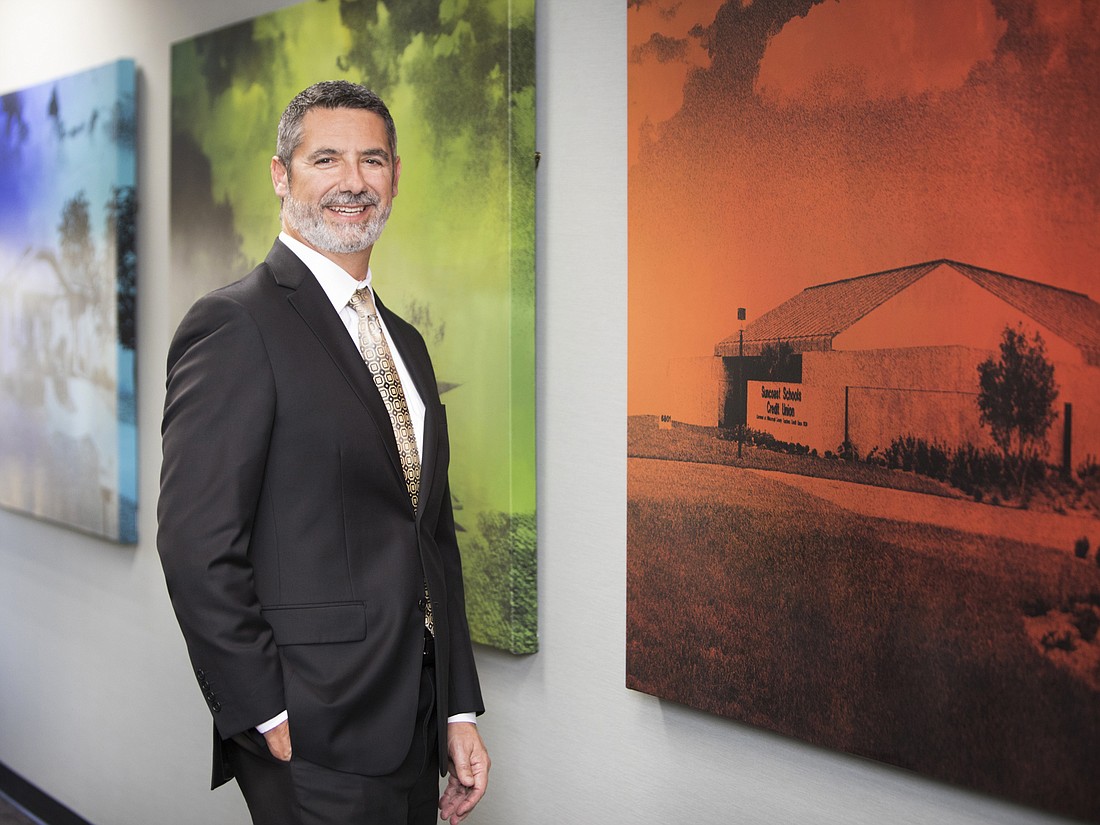- January 30, 2026
-
-
Loading

Loading

It’s not every day you see a credit union buying a bank in Florida. And never before has the target been this big.
But that’s what can happen when you reach $10 billion in assets. Suncoast Credit Union, headquartered in Tampa, reached that mark May 31. Six months later, the credit union bought Miami-based Apollo Bank, with $746 million in assets. Terms of the deal, announced Dec. 3, weren’t disclosed.
In banking, $10 billion is more than just a really big number. When an institution crosses that threshold with its assets, it becomes subject to several regulations within the Durbin Amendment of the Dodd-Frank Act. One of those is a cap on income from interchange fees, which immediately put pressure on Suncoast’s earnings. And because Suncoast is a credit union, that cap didn’t hurt just a few dozen investors — it hit the more than 861,000 members of the institution.
“All of our profits go back to our members,” Suncoast CEO Kevin Johnson says. That meant when Suncoast reached $10 billion in assets, it immediately had about $25 million less to give back to its membership.
Johnson and his board of directors needed a strategy to recoup those losses, with basically two options: jumpstart organic growth or make an acquisition. “We did take a look at banks we thought may be for sale,” Johnson says, choosing option one.
That led the credit union to a prime and untapped market: South Florida. It found a bank there, Apollo, which had blossomed under its charismatic leader, Eddy Arriola. Born in Miami and raised by an entrepreneurial family, Arriola’s father ran a printing business, and Eddy worked there shortly after graduating from Boston College. “I went to work for my father, and I saw how happy his employees were,” Arriola says. “I saw how my father, as an entrepreneur, had an impact on 400 families.”
He started an internet company and later a call center and data management business, InkTel, which remains in business, operated by his brothers. In the early 2000s, he became an investor and board member at Total Bank. That bank tripled in size after he joined, and was sold in 2007 to Grupo Banco Popular Español for $300 million. The ensuing recession gave Arriola an idea. “I thought, we need more financial institutions engaged in this market to help us get out of this mess,” Arriola says. His solution? “I said, I’ll start a bank.”
After initially planning to start from scratch, the opportunity to acquire Union Credit Bank presented itself in March 2010, and Arriola went for it. He renamed the bank Apollo.
Arriola says that he didn’t buy the bank with the full intention of selling it a decade later, but he did know he would have to do something for investors. “I always knew at the 10-year mark that I needed to address liquidity,” he says. “Do I need to be more active on dividend payments? Do we consider an IPO? Or do we consider selling?”
Arriola ultimately went with a credit union — which, while unusual, isn’t as rare is it once was. It’s actually the 12th credit-union acquisition of a bank in Florida since December 2015, when Dunedin-based Achieva Credit Union bought Charlotte County-based Calusa Bank, which had $165 million in assets. Suncoast officials call it the largest bank acquisition by a credit union in U.S. history.
'When we looked at their financial strength we really felt good about what we saw on paper.’ Kevin Johnson, Suncoast Credit Union
One key to the deal? Arriola and Johnson clicked quickly. “When we met, I think for both of us there was just so much chemistry and synergy,” Arriola says. “We knew that our people were going to fit well into their culture. I knew that our team was going to be in good hands.”
Johnsons calls it an instant connection. “When we looked at their financial strength,” he adds, “we really felt good about what we saw on paper.”
Suncoast officials estimate the deal could close by May 2020.
While not a regulatory challenge, per se, the deal could lead to more criticism of credit unions from bankers. They contend really big credit unions — Suncoast, for one — have far outgrown their reason for being a nonprofit and not paying taxes. Bankers have lobbied Congress to change that provision, and several proposals could be heard in 2020.
Echoing other credit union officials, Johnson says the tax provisions are correct because as "nonprofit cooperatives, credit unions were conceived differently and we conduct our business differently than a for-profit bank, where profits are returned to a board of directors."
Also, the tax breaks, Johnson points out, aren't all-encompassing: Suncoast will pay a 24.5% corporate tax on the Apollo transaction. Johnson says the tax is worth it, "to take our message to such an important market like Miami."
— Alex Walsh